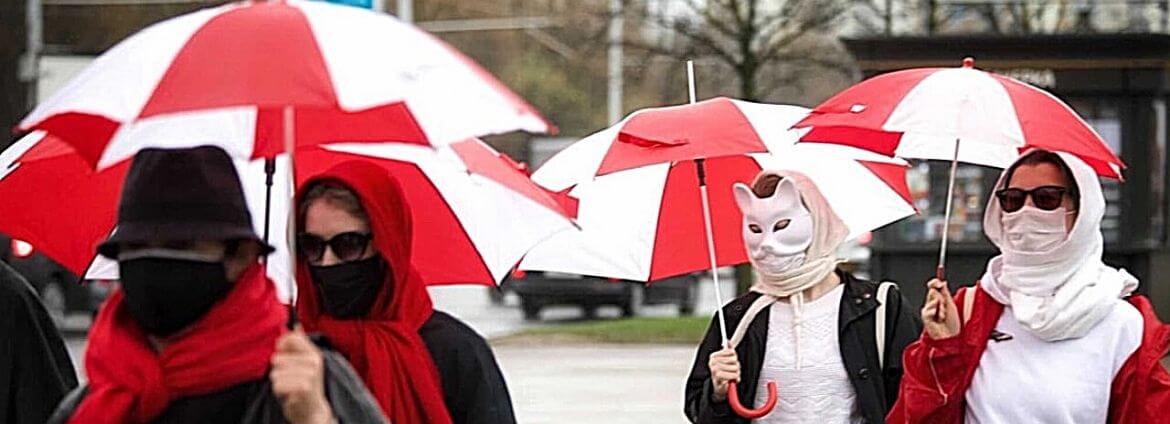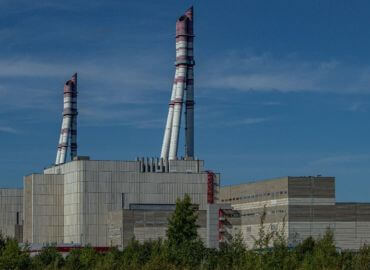A STAGED «COUP»
This is an update on the ongoing political crisis in the Republic of Belarus prepared for you by the International Strategic Action Network for Security (iSANS).
Post-election protests in Belarus continue for 255 days. This week, the events became more turbulent after self-declared «president» of Belarus Aliaksandr Lukashenka and the Kremlin exposed «an attempted coup and assassination attempt» against Lukashenka and his family.
In response, Lukashenka promised signing new legislation that will become a «principal decision» of the quarter century of his rule. The news about the «coup» was announced the day after Russia’s Prime Minister Mikhail Mishustin left Belarus after his official visit — and ahead of Lukashenka’s visit to Moscow (on April 22). A «coup» was uncovered simultaneously with the renewal of integration talks between Russia and acting authorities in Belarus.
Although Lukashenka may not accept complete integration with Russia that will remove him from power (and thus will leave him and his family completely insecure), his position is weak enough for the Kremlin to try Lukashenka’s limits – while publicly declaring his full support. The range of offers varies from the establishment of Russia’s military base in Belarus (for instance, to threaten Ukraine along its Northern border) to new integration that will further dissolve the sovereignty of Belarus. It’s critical to remember that if the West will choose to give up Belarus to Russia, it will undermine trust in the EU and the United States within the whole region.
On April 17, Lukashenka accused Joe Biden, CIA and FBI of organizing an unsuccessful «military coup». The «coup» allegedly included plans to assassinate Lukashenka himself and kidnap his sons. At least three people were arrested in relation to this case. Two of them, Aliaksandr Fiaduta (Feduta) and Yuras Ziankovich were detained in Moscow. Lukashenka has engaged Russia’s FSB to support his fight against political opponents, but there’s also a chance the whole plot was developed by Moscow experts.
The selection of detainees and arguments provided by both KGB and FSB give reasonable grounds to conclude that the «military coup» never really existed and was a provocation of state security services (such conclusions can be made from complete records of a ZOOM chat between the «coup organizers» – instead of excerpts presented to public by state security and state television). The basic scenarios are:
1) Ziankovich and Fiaduta were lured to Moscow at the request of Belarus KGB with FSB performing the final stage;
2) it was a «joint venture» of two state security organizations from the very beginning.
According to the Kremlin spokesman Dmitry Peskov, Putin discussed the «coup» during last week’s call with Biden (before Lukashenka announced the «coup» to his pocket media, but already after the «conspirators» were arrested in Minsk and Moscow). The White House, however, didn’t mention this matter in public comments or statements related to the call between American and Russian leader.
Following Lukashenka’s stand up, Belarus state television started a massive «coup» awareness campaign. One of key propagandists, Ryhor (Grigori) Azaryonak, publicly stated in his evening prime-time program that Putin’s support justifies Lukashenka’s right to purge the «fifth column» – and urged to relaunch SMERSH practices across Belarus. SMERSH (СМЕРШ, acronym from «смерть шпионам» – «death to spies») is an umbrella term for Stalinist counter-intelligence units that were engaged in mass deportations and extrajudicial executions of foreign soldiers and «internal» ideological enemies of Stalinist USSR across Eurasia in 1943-1946.
Meanwhile, Vladimir Makei (the so-called «minister of foreign affairs») and his subordinates continue efforts to earn international credibility through meetings with ambassadors of EU member states. For instance, on April 16 Makei met with the Ambassadors of German and France, Manfred Huterer and Nicolas de Lacoste. The results were poor. Following the meeting, the MFA of Belarus published a statement claiming that the meeting was focused on discussion of further cooperation and “constitutional developments” in Belarus. However, in a related joint statement by German and French embassies, both ambassadors highlighted that they confirmed EU’s opinion that there will be no normalization of relations until acting authorities of Belarus begin real national dialogue, free all political prisoners, and end ongoing state-led violence.
As Lukashenka accuses Biden, FBI, and CIA of organizing an assassination against him in response to calls for dialogue, Minsk will hardly reestablish relations with the US, and a «multi-vector foreign policy» that was declared for many years, now cannot be sustained even in its previous weak form.
America’s ambassador Julie Fisher (the first U.S. ambassador to Belarus since 2008) is not provided Belarus visa, as Makei announces that his subordinates will only let her into the country after the United States “define her status”. Makei says that Amb Fisher has no place in Belarus if she will not recognize the regime in Minsk or will call it «illegitimate» (this is, however, the official position of the United States who do not recognize Lukashenka).
Since the regime in Minsk refused to refrain from violence against civilians, the United States relaunched sanctions against major state-owned industrial companies from Belarus. U.S. Secretary of State Antony Blinken wrote that «There can be no business as usual with Belarus given the regime’s flagrant disregard for human rights. We call on the Belarusian authorities to immediately and unconditionally release all political prisoners and engage in a meaningful dialogue on elections.»
As the United States impose new sanctions, Sviatlana Tsikhanouskaya expects for the EU to be «braver» with its economic measures against Lukashenka.
REPRESSIONS: TORTURE AND NEW DRACONIAN LAWS
Over 7 months, the number of political prisoners in Belarus grew to 357 (+69 people in the last month). In the last few months, human rights groups recorded hundreds of poorly-grounded administrative arrests and new criminal cases based on absurd justifications. Most importantly, human rights activists record continuous facts of torture and inhuman treatment that do not stop since August 2020. For instance, in recent months, the guards at detention centers are using new torture tactics – they splash buckets of water mixed with calcium hypochlorite (chlorine) into prison cells to cause breath damage among prisoners.
The political prisoners are systematically deprived of basic rights (mattresses, pillows, bed linen, books, newspapers, mail, sleep, shower, female hygiene goods), they’re being systematically beaten, humiliated, and face various forms of psychological violence and discrimination based on a system of color-codes used to separate political prisoners from the rest of detainees. The practice of color-coding was widely used since August 2020 to target torture against specific groups of detainees. Overall, the reports of prison conditions and treatment of inmates often remind more of war-time conditions for POWs, rather than for civil prisons in modern Europe.
Outside prison walls, the conditions are made unbearable for employees within certain professions. Earlier this month, the legislators in Minsk approved two amendments (in the first reading) that will abolish the work of lawyers for independent law firms or individually. Legal aid bureaus controlled by the bar association will become the only available form of work for lawyers. The bar association is ideologically and politically charged by the Presidential Administration, and may strip lawyers of the right to profession once they become politically «unreliable”, and, in fact, deprive them of the right to profession.
As repressions worsen, the regime introduces new legislation to justify new criminal and administrative cases against peaceful protesters and media workers. The work of journalists is limited to the extreme (including a ban on live streams of unauthorized events, punishable by arrest) and more criminal charges can be imposed on press workers through April update of Media Law. Belarus confirmed its status as Europe’s most dangerous country for journalists and crashed 5 positions down on RSF 2021 index.
On April 20, Lukashenka signed a law that builds legal grounds to limit operations with foreign currencies after July 9, if necessary. The measures may include a ban to buy, an obligation to sell, and other limitations on foreign currency operations (including opening of bank accounts in foreign currency). Internally, economic expectations are depressive.
Best regards,
iSANS team










